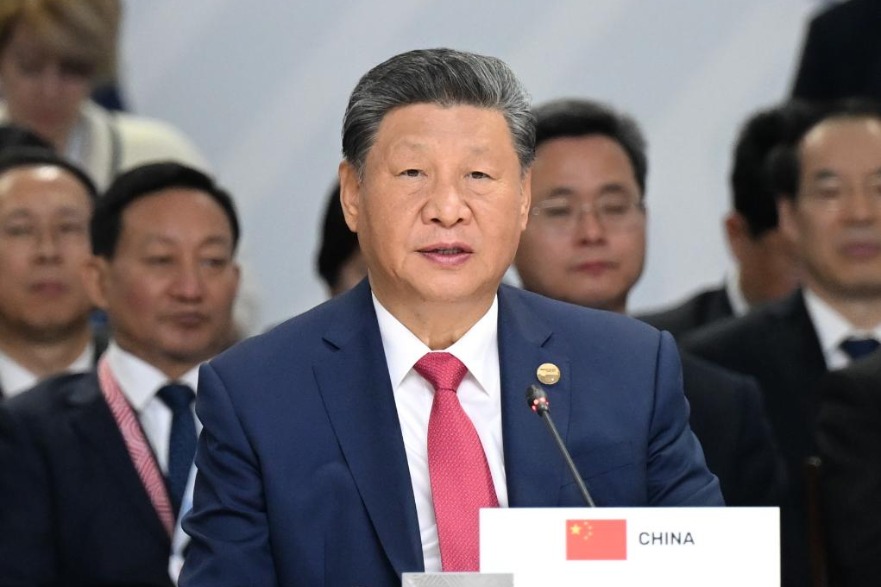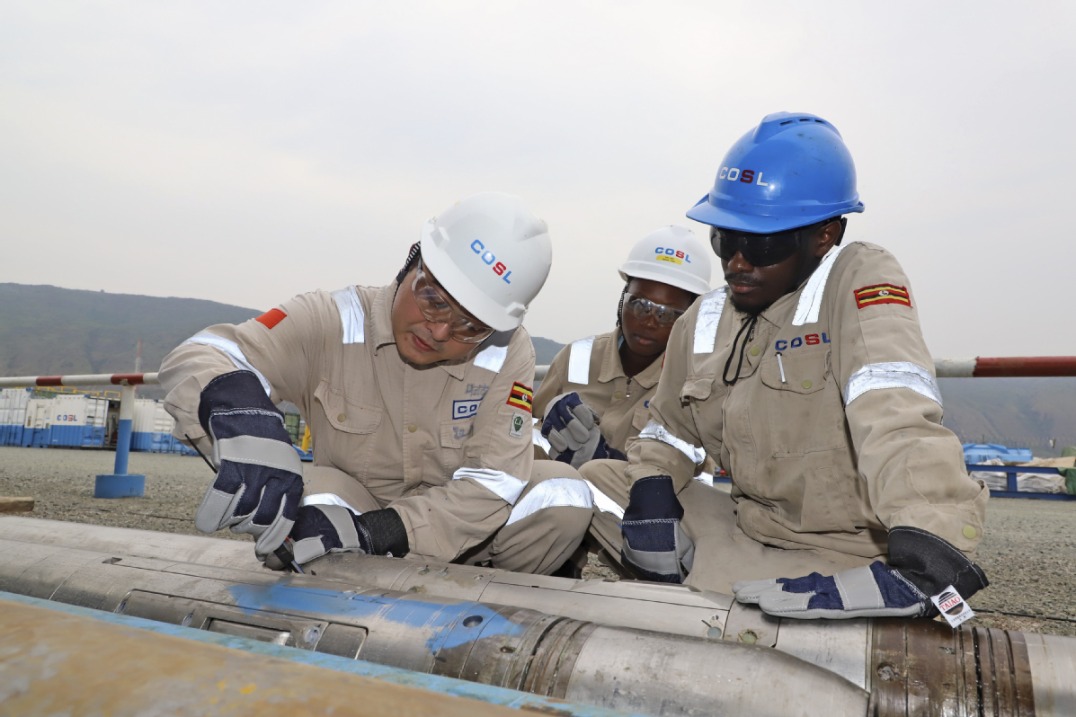Incredible growth jumpstarter
BRI is one of the keys for responding to a new era of growing global challenges

BRI is one of the keys for responding to a new era of growing global challenges

This year marks the 10th anniversary of the Belt and Road Initiative. I spent the past month and a half in Southern, Central and Eastern Europe, conducting fieldwork in Hungary, Greece, Italy, Germany, Poland and Ukraine, with stops in the Czech Republic and Austria before heading back to Shanghai through Qatar.
This is not a travelogue. Rather, as I've moved through a Europe that is still struggling to come to terms with Brexit, the Ukraine crisis, energy security, climate change and sustainable economic growth, with some countries being friendly to the Belt and Road Initiative, some hostile, and some in between, this is a reflection on current challenges and how we should understand the initiative as a solution and not another headwind in this period of mounting and intersecting problems.
When the Belt and Road Initiative was first proposed and its initial maps were published, it seemed fantastic and yet not unbelievable. As a global vision of real, mutual development largely devoted to building better connections within the Global South, it rang true in terms of Chinese discourses but presented the sort of bold plan of action that Beijing historically would have hesitated to mount on the world stage. Nevertheless, in terms of capacity to actually execute the plan, anyone familiar with Chinese development achievements over the course of reform and opening-up understood that China indeed had the ability to advance the initiative realistically.
In fact, while a great number of non-Chinese, many Western people greeted the initial plans with incredulity and, in some cases, fear-mongering, some Chinese themselves found the Belt and Road Initiative unsettling — they did not understand why China was taking a greater leadership role in the world, thinking it made more sense to avoid increased risks and responsibilities, and that it was better to concentrate national resources at home.
What some critics and naysayers did not understand then, and what the Chinese leadership would better explain is that China and the rest of the world were already entering a new era. On the one hand, this included China's rise as a major power, its timely achievements of eliminating extreme poverty, suppressing corruption, controlling the COVID-19 outbreak, and establishing a moderately prosperous society with more than 400 million middle-income earners, and doing these things while simultaneously emerging as the global leader in green innovation, environmental cleanups and ecological protection.
On the other hand, it likewise included a recalcitrant Global North, including several Western or West-oriented countries but most especially the United States, clinging desperately to old paradigms that had made it difficult for developing countries to break out of debt traps and take real steps forward, while also ensuring that most emerging countries become stuck in middle income, energy and security traps. But this new era would also include, as some leading scholars, think tanks and government agencies predicted, a global failure to reverse climate change, an increase in novel disease outbreaks, growing political instability and polarization in a growing number of countries, and war.
When I was in Ukraine, I saw a country that needs China's help to mediate peace and, thereafter, help in rebuilding. The West has offered tepid assurances that it can help Ukraine rebuild, but even more tepid have been promises to join the European Union and NATO. In fact, the West cannot save Ukraine and perhaps cannot even save itself. Indeed, the West bears considerable responsibility for the circumstances that led to the crisis, and likewise responsibility for sustaining it now, with dozens killed daily, despite an effective stalemate since late last year. In fact, almost all of the Ukrainians I interviewed, across the country and across the political and economic spectrums, knew these things to be true.
And yet, many Ukrainians remain vulnerable to disinformation, believing China's neutrality has allowed it to benefit from the conflict, for example, through increased trade with Russia. In fact, those increases are modest compared to the damage China has suffered given intense US pressures in European capitals to return to a Cold War paradigm.
When I was in Greece, I heard much about one of the Belt and Road Initiative's early successes, the Greek Port of Piraeus, but thereafter in Italy, under intense pressure from Washington, the government in Rome decided to abandon the Belt and Road Initiative. The Italian prime minister was in a pickle, forced as others increasingly are into a zero-sum game versus building a shared future for humanity. Although she counterbalanced her decision by assuring that bilateral ties with China remain strong, and perhaps they do, only those espousing US interests or xenophobia see such steps as promising.
In Poland, I saw a country and political elite mobilized by a pro-Ukraine, anti-Russian narrative, but likewise longstanding anti-German narratives that understandably remain part of Poland's national identity. Nevertheless, many people assured me, these "anti-narratives "have more to do with the politics of distraction, advanced by politicians who lack a real vision of the future and seem to believe that advancing a pro-US line is the only way to advance Poland. In fact, Polish people are not politically naive, and while not succumbing to the negative spirit of such negative rhetoric, most of those I spoke with were unable to envision the possibility of an alternative politics.
In Hungary, people told me of the country's increased economic dependence on China, particularly as its other major economic partner, Germany, has suffered significant setbacks after losing access to Russian energy; and yet, I also heard accounts of the attacks, including dog whistle racism, advanced by Hungarian liberals against Fudan University's efforts to build a campus in Budapest. Hungary remains positive toward China, but US soft power remains potent there.
In Prague, I saw Chinese by the dozens, still a major tourist draw, especially among couples seeking a romantic holiday. And yet, the Czech academics I met there spoke of the increasingly difficult political climate they faced in their universities, of an emerging cancel culture directed against those engaged in candid discussions about global affairs, and a growing lack of confidence in the future. What about China, many asked me: Is there a future for us in China?
To hear such questions in Europe while the EU and the United Kingdom find themselves increasingly drawn down Washington's dark path, and while NATO expands and Washington dreams of advancing it against China, I am reminded effectively of the answers to such questions that we've heard from the Global South, especially Southeast Asia, the Middle East, Central Asia, Africa and Latin America: as the past 10 years have demonstrated, and as the Belt and Road Initiative has helped illustrate, there is no future without countries moving hand-in-hand with China. Washington's counter-proposals, such as the Build Back Better World Initiative, are known shams. Without China, there's little to no shared development, no major trading partner, no bulwark against climate change or future pandemics, no respite from US hegemony, no security from military and political interventions and the constant threat of eroding sovereignty.
Over the past decade, the Belt and Road Initiative has demonstrated its incredible capacity to jumpstart growth and development. Over the past 10 years, we've also seen the initiative and anything associated with China being demonized by the US and those who have decided to keep their declining fortunes and futures in lockstep with Washington. To be sure, the Belt and Road Initiative has had its ups-and-downs: not every project has been realized, and certainly challenges such as the pandemic were impossible to weather perfectly. Nevertheless, the initiative has proven itself to be one of the few and perhaps only major plan to make significant achievements in advancing human progress across a great number of diverse countries. It remains the only credible effort capable of still achieving much more in a world that desperately needs much more. It's with this perspective that we should greet the Belt and Road Initiative's 10th anniversary, and encourage others to do the same before they're left further behind.

The author is a professor of politics and international relations at East China Normal University and a senior research fellow with the Institute for the Development of Socialism with Chinese Characteristics at Southeast University and the Hainan CGE Peace Development Foundation. The author contributed this article to China Watch, a think tank powered by China Daily.
Contact the editor at editor@chinawatch.cn


































